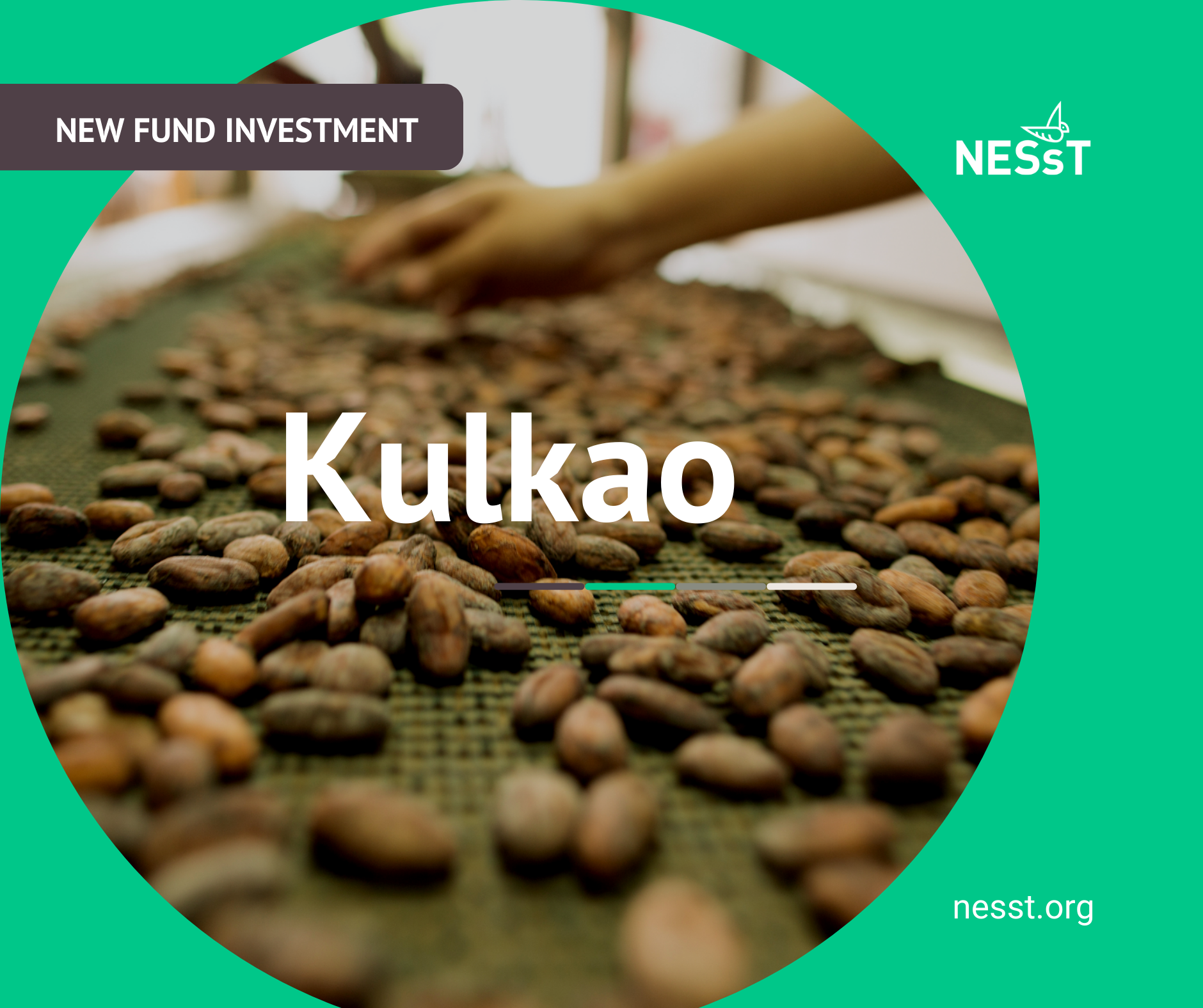NESsT is thrilled to welcome Kulkao into its portfolio.
One of the top 10 exporters of cocoa products in Peru, Kulkao developed a business model that prioritizes the social and environmental impact of its production activities, allowing it to sustain a strong relationship with smallholder cocoa farmers while securing quality organic cocoa to its global clients.
The NESsT Fund loan will increase Kulkao’s organic production capacity and improve the yield of smallholder farmers living in the Peruvian rainforest, expanding the income possibilities for local indigenous communities in the buffer zone of the Cordillera Azul National Park, which covers more than 1.5 million hectares of land.
Kulkao sources cocoa beans from over 1,000 local cocoa smallholder farmers, some of whom are from the Naranjillo cooperative and have been members for two to three generations. The social enterprise offers farmers technical training on organic farming practices in addition to higher than market prices for their harvests. Its products include cocoa butter, cocoa powder and cocoa nibs, and are in local and international markets such as Europe and North America.
The social enterprise hires employees directly from rural, low-income communities in San Martin Ucayali and Huanuco, equipping workers with education and secure income.
One of the reasons why indigenous farmers have a strong relationship with Kulkao is because of the social enterprise’s deep commitment to sustainably produced organic products. Since opening its organic processing plant in 2020, Kulkao has established a rigorous quality control process, ensuring compliance with organic certification requirements and preventing contamination through monthly testing of farm lands and consistent training for indigenous farmers that meet industry standards. Its quality control procedures also underscore traceability, allowing the social enterprise to pinpoint sources of contamination and work with farmers to improve their practices.
We are excited to be working with Paul Ramirez and Jildo Moreno and the team to support the growth of Kulkao. The resilient management has shown an impressive commitment to sustainability and supporting their suppliers during these difficult times of the pandemic. Conditions are rigid and it is challenging to get financing from traditional sources currently. We are pleased they are using our loan to accelerate their growth plans and improve the terms they can offer their suppliers. - Chad Sachs, NESsT Fund Director
As a member of the NESsT Portfolio, Kulkao will access business mentorship and technical training in addition to funding to enhance its product and growth strategies. NESsT will assist Kulkao to access more traditional sources of funding at lower rates and strengthen its position in growing the international cocoa market.
About The NESsT Fund:
The NESsT Fund invests in social enterprises and social innovators that are addressing the root causes of poverty for communities in Latin America —for example, the volatility of prices and bargaining power of smallholder farmers. To date, the NESsT Fund has invested in companies such as Inka Moss, Greenbox, CAECOS, and Shanantina which are improving the livelihood opportunities, gender equity, and environmental standards of remote communities in Peru.
About NESsT:
NESsT has focused on addressing the economic needs of the poor for over 24 years. We offer social enterprises patient capital and business advisory services over the course of several years helping them to consolidate and grow their companies and impact. During the past six months, over 700 enterprises in six countries have applied to join our portfolio but only 3% will be selected for multi-year support by this summer. These 20 new enterprises will have successfully completed a competitive review and due diligence process that lasts approximately six weeks. The proposals are evaluated based on the merit of each business model in meeting market demand through the employment of low-income and excluded communities, as well as a series of other criteria including the strength of its leadership team, governance, financial management, and environmentally-responsible practices.





